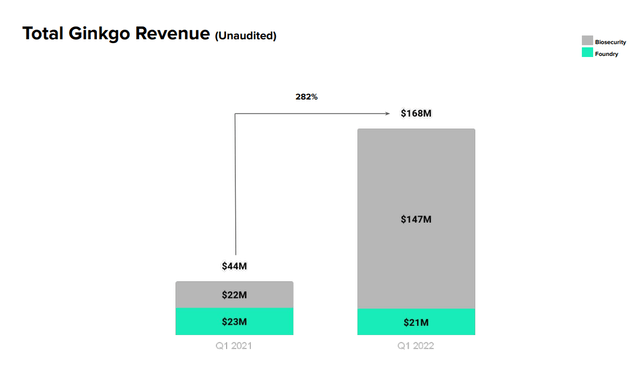Aliaksandr Yarmashchuk
Preamble
It cannot have escaped anyone’s attention that the environment has become a hot issue for leaders all around the globe. It would appear that everyone is standing on their soap box and producing a torrent of claims that the end is nigh unless drastic action is taken to save the planet. For reasons that don’t seem entirely convincing, two of the sectors earmarked for change are modern farming methods and meat.
Over the last few months, several high-profile political leaders have instigated radical changes that could seriously affect food supply. In June, New Zealand’s government announced plans to tax the burps and belches of cows and sheep. It would appear that cows are responsible for around 40% of the methane emitted into the atmosphere annually. Needless to say, these novel taxes will ultimately be paid for by the consumer. Also in June, the Dutch government declared war on nitrogen fertilizers. And it seems that the Trudeau government in Canada will not be far behind the Dutch in this regard. Given that nitrogen is essential for producing protein, without these fertilizers crop yields will collapse unless an alternative is found.
The former UK premiere, Boris Johnson, recently proclaimed that “we” may soon be consuming “lab-grown, eco-friendly alternatives to meat” in a bid to save the planet. And some of these labs have already been constructed and are churning out their wares. If you were to hazard a guess as to where one of the biggest cricket (An orthopteran insect) farms is located, you might reasonable suppose that it was somewhere in Asia, where they are seen as a delicacy to be enjoyed with a beer or two whilst watching soccer or a movie. It might surprise you to learn that a farm has been built in London, Ontario by Aspire Food Group. The company processes the bugs into “all-natural, sustainable, superfood ingredients that are nutritionally superior to livestock, cell-cultured, and plant-based alternatives.” Mmmmmm!, I can’t wait to wrap my gnashers around a cricket burger; how about you?
Anyway, Western politicians seem determined to wean us off the kinds of food that have sustained humans since we came down from the trees and oblige us to enter a new paradigm. So, as it is beholden on investors to take advantages of investment opportunities when presented, I am recommending Ginkgo Bioworks (NYSE:DNA). This may come a surprise, given that I have previously written rather negative articles on this company, however, situations change to make previously unloved companies into darlings.
The company has its fingers in a variety of pies, however, the thrust of this article will focus on the solutions Ginkgo is continuing to develop in alignment with the ongoing circumstances outlined in this preamble.
Fertilizers
Let’s begin with the developing hostility towards manufactured nitrogen fertilizers. This essential crop nutrient is currently produced by a process called the Haber-Bosch method. In summary, it involves sucking nitrogen out of the air and heating it with natural gas, and, hey presto, you get ammonia, which is then converted into a nutritious brew for crops. One reason the environmentalists are getting agitated about this synthetic fertilizer is due to the fact that a large dollop of it makes its way into local water supplies, where it causes algal blooms to flourish and dead zones to form in waterways around the world. On top of that, the production of this fertilizer consumes approximately 1% to 2% of the world’s energy, and it comes with the associated increase in greenhouse gas emissions.
Many plants, such as legumes, produce nitrogen fertilizer by dint of microbes that are harboured on such plants. And the fertilizer produced by such bugs is, of course, environmentally friendly. For quite some time, Ginkgo have been engaged in a joint venture with Bayer (A global German chemicals company) to develop fertilizer generating bacteria that can establish a symbiotic relationship with crops that currently require synthetic nitrogen to enhance yields. Given the determination of Western countries to reject the use of fabricated nitrogen fertilizers, the opportunities in finding an alternative would appear to be immense.
Ginkgo Bioworks’ recent acquisition, Zymergen, has a mature nitrogen fixation program that uses modified microbes to replace nitrogen fertilizers. According to Zymergen’s last quarterly conference call, their nitrogen fixation bacteria are already being used in the manner described to enhance the yields of corn. Zymergen’s CEO, Jay Flatley, believes that; “the use of their microbes can be expanded to include additional cereal crops such as wheat and sorghum”.
Clearly, given the extensive distribution network of Bayer and the expertise of both Ginkgo Bioworks and Zymergen, a hefty boost in revenue would appear to be around the corner.
Lab grown foods
The justifications for the push towards lab manufactured foods are legion. There are those that contest that meat in all its forms are harmful for human health. Read enough newspapers and magazines and you will soon find published articles quoting scientific research that provide evidence that steaks and burgers will shorten one’s life span. There are the vegan zealots who promote their message to all who have ears to hear that cruelty to animals must become a thing of the past. More recently however, the cost of food is rising to such an extent that the poorest in society can no longer afford to consume as much meat as they would wish. Thus, they may well feel that meat alternatives are an option to consider seriously. Furthermore, our political leaders are evidently all in favour of encouraging citizens to consume meat substitutes.
There is certainly no shortage of plant-based meat to choose from these days, some of which are made solely from plant ingredients, whilst others are manufactured from lab grown components. The products of Beyond Meat is an example of the former category. There were great hopes that their offering would take off with the introduction of the McPlant burger, which was conceived in partnership with McDonalds. However, the project appears to be dying on the vine according to the most recent reports.
As to why the McPlant has hit the rocks, so to speak, one can only speculate. Perhaps it is because customers feel that the burgers taste similar to their constituents; mashed up vegetables. Motif Food Works, an associate company of Ginkgo, has recently launched a range of products containing their Hemami and Appetex ingredients, which they claim make their meat alternatives taste and have a texture similar to animal meat. Success of course hinges on whether the products gain traction with customers. However, if the positive reaction from market research trials are any guide, the company may well be onto a winner given the current political and economic climate.
The numbers
Even without revenue from the growth drivers listed above, the numbers for the last quarter were a pretty good encouragement to invest; as the graphic below shows. Although, it has to be said, that the growth rate forecasted for full year growth are a far more modest 21% (2022 revenue expectation $375 – $390 million up from $313 Mn in 2021).
Q1 Ginkgo Bioworks Revenue (Ginkgo Bioworks)
Still, since full year guidance for revenue is expected to be in the range $375 – $390 million and the market cap at time of writing is $5.77 Billion, investors are paying around 15 times revenue for the business. In my view, that is not bad given the current growth and the potential going forward.
To sum up
There are manifestly drivers which will catapult the revenues for Gingko Bioworks upwards in the near term. Given the performance of share price of the company, it would appear that the positives have not yet been appreciated by the market. This gives investors an opportunity to get in on the ground floor in order to make substantial gains.
Caution
Please be advised that I am long Ginkgo Bioworks, so please carry out your own due diligence.


Be the first to comment